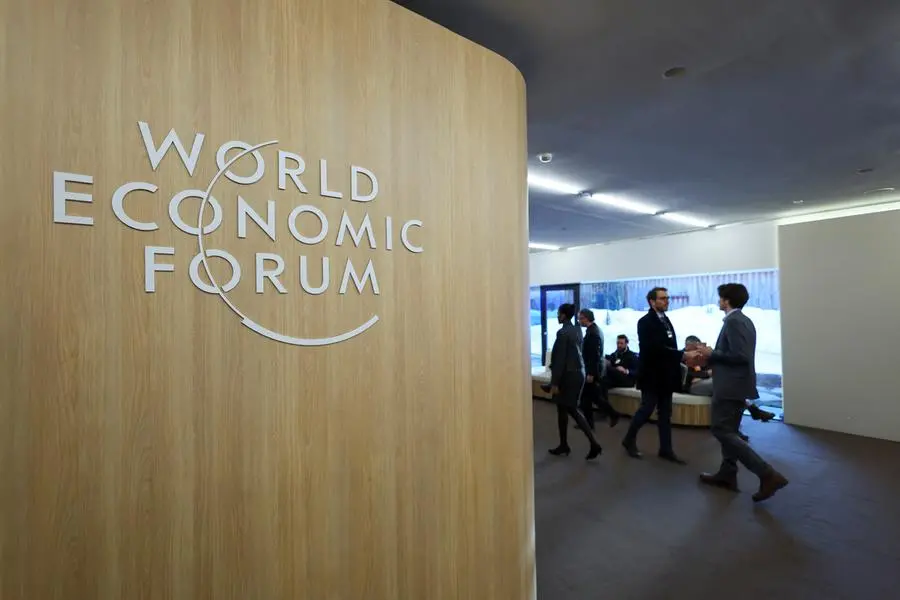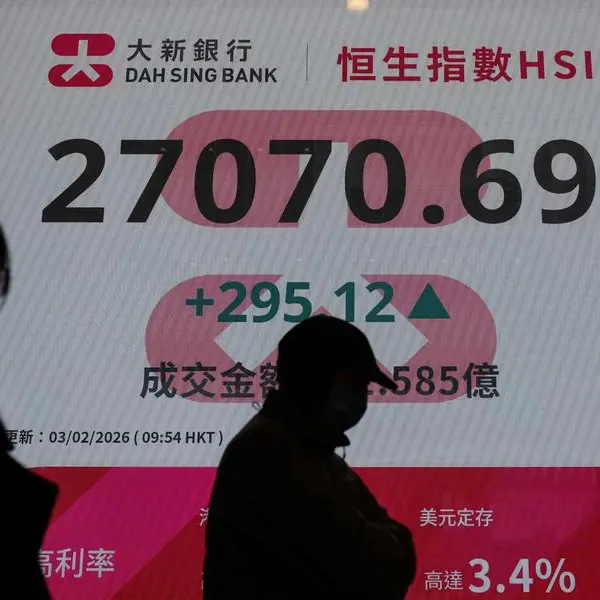PHOTO
DAVOS, Switzerland - World leaders and business executives left the freezing temperatures of the Swiss mountain resort of Davos after a week of high-stakes meetings about key world issues.
Here's what we learned:
MIDDLE EAST
Gaza dominated the agenda of the World Economic Forum (WEF), but leaders failed to produce clear details on any practical pathway to Palestinian statehood, or a ceasefire between Israel and Gaza's Palestinian militant group Hamas.
The war is slowing down the economy of the entire region, said Qatar's finance minister. The head of the Palestine Investment Fund estimated at least $15 billion would be needed to rebuild houses in Gaza alone. Arab states said they would not fund reconstruction unless there was a lasting peace.
"We agree that regional peace includes peace for Israel, but that could only happen through peace for the Palestinians through a Palestinian state," Saudi foreign minister Prince Faisal bin Farhan told a WEF panel.
RED SEA
Attacks by Yemen's Iran-aligned Houthi group on ships in the Red Sea would drive the cost of goods from Asia to Europe much higher, logistics giant DP World said. CEOs at Davos said they were gaming out alternative supply routes. Yemen's vice president and Iran's foreign minister said the attacks would not stop until Israel ended the war in Gaza.
"If it's in the short term, tankers might be available ... But if it's longer term, it might be a problem," said Amin Nasser, CEO of oil giant Saudi Aramco.
CHINA
Premier Li Qiang told Davos China's economy was open for business and highlighted its potential for foreign investment, but investors remained cautious amid sluggish post-pandemic recovery and tensions with the United States. Asked how helpful a closed-door lunch with Li was, one CEO said "medium", underscoring the scepticism about China's charm offensive.
"I'm glad that people are all talking," JPMorgan CEO Jamie Dimon after the Li lunch.
ARTIFICIAL INTELLIGENCE
Talk of AI rippled through Davos meeting rooms and panels, its promise touted on signs and its security risks invoked by China's premier. While conversations included how to regulate the burgeoning technology and how to apply it to scientific discovery, the question of how to monetize it persisted.
"Everyone's like, yeah, I can build these cool demos," said Cloudflare CEO Matthew Prince, "but where's the real value?"
DEBT RESTRUCTURING
Argentina's newly-elected President Javier Milei made his debut with a speech on the main Davos stage - and then quickly sat down with the International Monetary Fund's managing director Kristalina Georgieva to discuss his plan to navigate his country's debt maze. Ghana will re-engage with its international bondholders as the country seeks to build on momentum in debt restructuring.
"Free enterprise capitalism is the only tool we have to end hunger and poverty," said Milei.
ECONOMY
Heads of global banks warned of inflationary pressures from increased shipping costs and the possibility of oil price rises. Bank executives fear the market is mispricing interest rate cuts, and that geopolitical risks could cause volatility.
"It's a big year in general with many elections around the world which could change potentially the way fiscal stimulus is handled around the globe," said Suni Harford, President Asset Management and Group Executive Board Lead for Sustainability and Impact at UBS.
BANKING
Consolidation of European banks was discussed behind closed doors, but executives say cross-border mergers are difficult to achieve without uniform regulation across the region. Selective mergers of national players were seen as more likely.
ENERGY
While several panels focused on the end of fossil fuels, the head of Aramco told Reuters demand for oil would not peak any time soon. The number of energy executives in Davos was smaller than in years past. Oil bosses from Shell, TotalEnergies and Aramco met on the sidelines to discuss how to help decarbonise industries they supply, three industry sources said.
UKRAINE
With other crises jostling for attention, President Volodymyr Zelenskiy put Ukraine on the Davos agenda early. Talks with more than 80 national security advisers from around the world led to Switzerland offering to host peace talks. Zelenskiy also met with Wall Street's Jamie Dimon and other bank leaders to seek financing for Ukraine's reconstruction.
"Ukraine can prevail in this war but we must continue to empower their resistance," European Commission President Ursula von der Leyen said, urging Kyiv's Western allies to continue arms deliveries and financial support.
GENDER
The WEF said that around 28% of the total of 3,000 participants, including 350 heads of state and government and ministers, who gathered in Davos this year were women.
"This year marks a significant milestone in the 54-year history of the Annual Meeting, as we expect to welcome more than 800 women to Davos — the highest number in our records," it said.
(Reporting by Reuters Davos team; Editing by Leela de Kretser, Alexander Smith and Mark Potter)




















